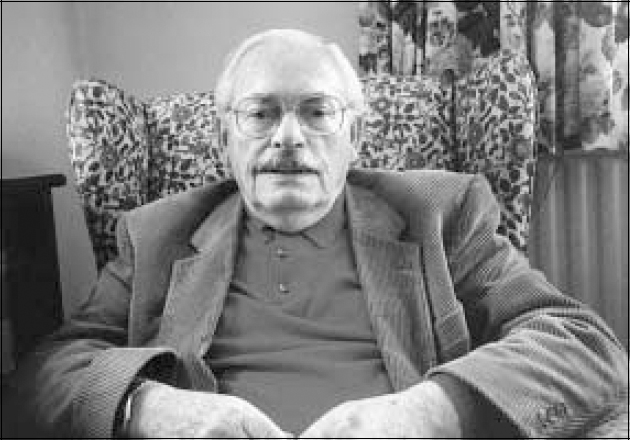Dr Matthew Radzan (Hugh) died aged 85 on 1 May 1999 from a myocardial infarction at this home in Bexley Kent. Hugh was born on the 5 January 1914 in Bethnal Green and lived in the London area most of his life. His father, an immigrant from Russia, settled in East London and followed his profession of jeweller and watchmaker. Hugh attended Raine's School, Stepney.

He obtained his MB BS (Lon) in 1939 from King's College, London, followed by a DPM in 1940. In 1971 he was elected FRCPsych. In the Second World War he served with the Royal Army Medical Corps in the Middle East from 1939 to 1945 achieving the rank of Major (specialist psychiatrist).
His first civilian psychiatric appointment was to Hellingly Hospital, Sussex and in 1948 he was appointed to Bexley Hospital, Kent. I met him in 1949 under happy circumstances and our association continued for a further 50 years until his recent death.
In those days Bexley Hospital, with over 2000 beds, served a large area of southeast London, to which was added an adjacent piece of Kent. The medical Superintendent then was Dr L. C. Cook whose Deputy was Dr Comerford. They were both distinctive characters and complemented each other in a way that led to a smooth running hospital. Many changes were taking place both in the treatment and management of patients with an increase in staff at all levels. When Dr Comerford died, Hugh took his place as Deputy, and when Dr Cook retired in 1958, Hugh became Medical Superintendent. He enjoyed his new position, but due to his sometimes brutal frankness and his exacting disposition he became, on occasion a controversial figure.
Many clinical psychiatrists at this time had become dissatisfied with the existing management structure and there was much discussion about the possibility of changing the way mental hospitals were administered. There was a proposal that a Medical Advisory Committee be set up to advise the Hospital Management Committee. A transition of this nature did begin to take place about 1960 and it affected the position of the Medical Superintendent. Hugh was not pleased, but accepted the change, uttering gloomy prognostications about the future of clinical freedom. No doubt, in later years, he did have the satisfaction of being able to say “I told you so!”. He continued to pursue the goals he had set himself and was responsible for planning and organising the opening of Castlewood Day Hospital and re-instate, an industrial unit for patients. Both these projects are alive and active to this day.
He decided to exercise the option to retire from his post at Bexley Hospital in 1968 and then held various locum posts as well as jobs with local authorities with the emphasis on children's care. He was also appointed for two consecutive terms of three years each to be a member of the Mental Health Review Tribunal, South-East Metropolitan Region, expiring October 1975. This work satisfied him immensely. Above all, he loved to have family and friends around him and would discuss and give advice on all manner of things. He was, in fact, very knowledgeable on many matters besides medicine.
He enjoyed good health and was able to follow his hobbies and pursuits fully until about 1982 when health problems arose. But with considerable ingenuity and resourcefulness he overcame most of his difficulties and was still able to enjoy motoring, watching car racing and holiday travel. It was only in the last year or two of his life that he became more house-bound. He leaves a wife, two daughters, a son, nine grandchildren and six greatgrandchildren.



eLetters
No eLetters have been published for this article.